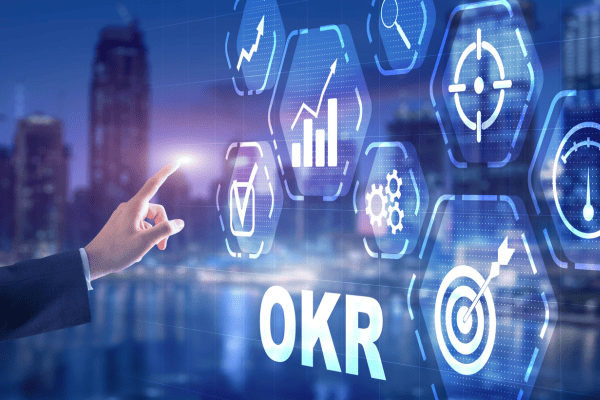Written by Jonny Steiner
The potential for AI to revolutionize video games is real, even if it has yet to arrive fully. Procedurally generated video games like “No Man’s Sky” have given us a glimpse, but rather than using AI, they use algorithms to create content dynamically. Considering the potential of fully integrating AI into video games, we might envision branching paths shaped by each in-game decision or adversaries that dynamically adapt to the player’s style. This would be exceptionally important in the “Madden” NFL games, where AI could help make in-game players act more realistic and help defenses adjust on the fly against the player.
The ability to inject dynamic experiences and interactivity in virtual worlds is on the way, while AI is being used to generate video game code at an unprecedented rate. With this newly unlocked potential comes the need for accountability and governance to ensure that AI powers innovations without compromising quality, security, or ethics. There are different areas to focus on, such as:
- Automated Checkpoints: Scan for inconsistencies and biases before they disrupt the gameplay experience.
- Embedded Policies: Guide decision-making towards ethical and responsible outputs.
- Transparent Audit Reports: Trace AI activity and ensure accountability.
- Orchestrated Releases: Ensure that human interaction is still driving the process.
- Security Measures: Safeguards all systems, whether on-premise or in the cloud.
- Traceability Systems: Collect detailed information from every AI action and leave a pristine record for review.
- Automated Audit Preparation: Simplifies compliance and allows developer teams to focus on their next innovations.
Putting these pillars of governance into effect will help unlock the potential that AI can bring to video game development. Responsible creation will meet cutting-edge tech, and players will share in-game experiences that are carefully built and exhilarating. This future is close, which is why we are delving into the concept of governance in video games.
Automated Gatekeepers Keep AI in Check
The first place we must delve into is how automated gatekeepers can act with vigilance to protect games from glitches, inconsistencies, and ethical missteps. These tools act like knights from Skyrim patrolling your code and keeping your castle safe. Scanning the code will ensure a safe and inclusive environment against offensive language, scenarios, or biases.
Verifying in-game statistics and resources helps prevent glitches and strange situations while keeping the integrity of the data in check. It also ensures that games follow a logical flow with seamlessly branching stories. However important these fixes are, drilling down and embedding ethical principles into the AI code developers will help better guide the decision-making process. Embedded policies increase transparency and build trust between the developers and players. Pre-programmed guidelines also help guarantee consistent decision-making by preventing erratic AI behavior. Finally, all actions are traceable, identifying deviations from ethical principles so the development teams can have full accountability. Using automated gatekeepers helps to reign in and simultaneously unleash the power of AI without any compromises.
Autopilots and Orchestrated Releases
Automated audit reports document all AI decisions, the data it uses, and the outcomes it generates. They eliminate the need to dig through endless lines of code or decrypt confusing logs. It fosters the transparency and accountability crucial for building player trust and motivating ethical development. Each report should give clear evidence of the AI’s behavior, showing how it contributes to the final product.
When we talk about orchestration, it is to ensure that a game launches as a calculated effort, not as a hope and a prayer. With an orchestrated release process, you can control all deployment timelines completely. It is like an air traffic controller, ensuring each flight lands safely and in an organized manner.
Many benefits can help the gaming industry here. Developers can use player feedback and adjust their games in real-time, mitigating glitches before they negatively affect gameplay. It removes the chaos of launches and provides a path to release with confidence. Tools like Digital.ai’s Release & Deploy empower users to coordinate every aspect of a game’s release, just as the air traffic controller ensures safe journeys by directing each flight to their gate. Transparency and control help unleash AI’s full potential, while a confident release process ensures you will positively impact players.
Securing and Regulating
Keeping a video game secure is like guarding one of the kingdoms in the game itself – It takes castles, outposts, and even an army. Securing detailed video games and applications can seem almost impossible, but security checkpoints posted throughout the development process, from development to deployment vulnerabilities, will be discovered and eliminated.
Complying with new laws and regulations may seem difficult as they develop. Embedding compliance checkpoints and security during development helps identify compliance issues before they become real problems. It is like having a proactive legal advisor watching over the development process. For example, if your application has in-game ads and some regulations change about these ads, compliance checkpoints would flag that element as a conflict. Then, the developers could adjust and stay compliant.
Being proactive about security and regulations means no last-minute scramble to adjust to vulnerabilities or changing regulations. Having the right tools and threat protections to navigate this complex process is crucial for safeguarding your game, ensuring your players’ safety, and fostering your business’s success.
Tracking Every Move
Traceability is essential in AI-powered video games as the world changes constantly. It is how developers can keep things fair, ethical, and transparent. Every decision or piece of data, each generated outcome, is recorded. The record is like Google’s location history, pinpointing every issue and promoting responsible development.
Keeping things accountable and open is central to traceability. With that level of transparency available, trust in your game will increase and help pave the way for a responsible embrace of AI for both developers and players.
Activating Responsible Use of AI in Video Games
The use of AI in the video game industry is increasing and will soon achieve some of the breakthroughs gamers have always dreamed of, like enemies that evolve with the player’s skill and playing style or stories that adapt as the player makes different in-game decisions. We already have a modicum of this functionality, and the future looks bright. However, with these game engines in place, developers need a steering wheel to stay responsible. Human governance and accountability are essential to harnessing the power of AI to keep games responsible and, even more importantly, innovative to engage player trust at a high level.
The power of AI harnessed with human governance and accountability will unlock several benefits:
- Innovation: The desire to deploy AI into video games has long existed, as it has the potential to create more dynamic environments, characters, and storylines when properly executed.
- Responsible Management: Proper governance of AI ensures fair and ethical operations, contributing to a safe and inclusive playing environment.
- Full Transparency: With traceable decisions and easily accessed audit reports, everything is open and available to foster better player trust and put regulators and investors at ease.
The future is bright for developers as they learn to overcome the fear of complex AI implementations and embrace the new tools and frameworks used daily. With that, they can let their imaginations run free and refine the future of video games as they build inspiring experiences that establish a legacy of responsible innovation that will dazzle their players.
Want to learn more about the ever-expanding threat landscape in the gaming industry? Explore how Digital.ai Application Security helped FromSoftware reduce its false positive rate and prevent cheating without compromising performance here.
Are you ready to scale your enterprise?
Explore
What's New In The World of Digital.ai
Navigating the Complexity of Release Processes in Financial Services: Insights and Approaches
Gain insights into standardizing release processes in financial services. Learn from industry experts on navigating complexity and driving innovation.
Empowering Developers: Enhancing Experience Through Automation and Standardization
Empower developers with Digital.ai’s AI-powered DevSecOps platform. Automate tasks, optimize workflows, foster innovation. Drive productivity & success.
Unleash the Power of OKRs in Digital.ai Agility
Unlock success with OKRs in Digital.ai Agility, aligning strategy to execution seamlessly. Revolutionize your Agile practices today!




